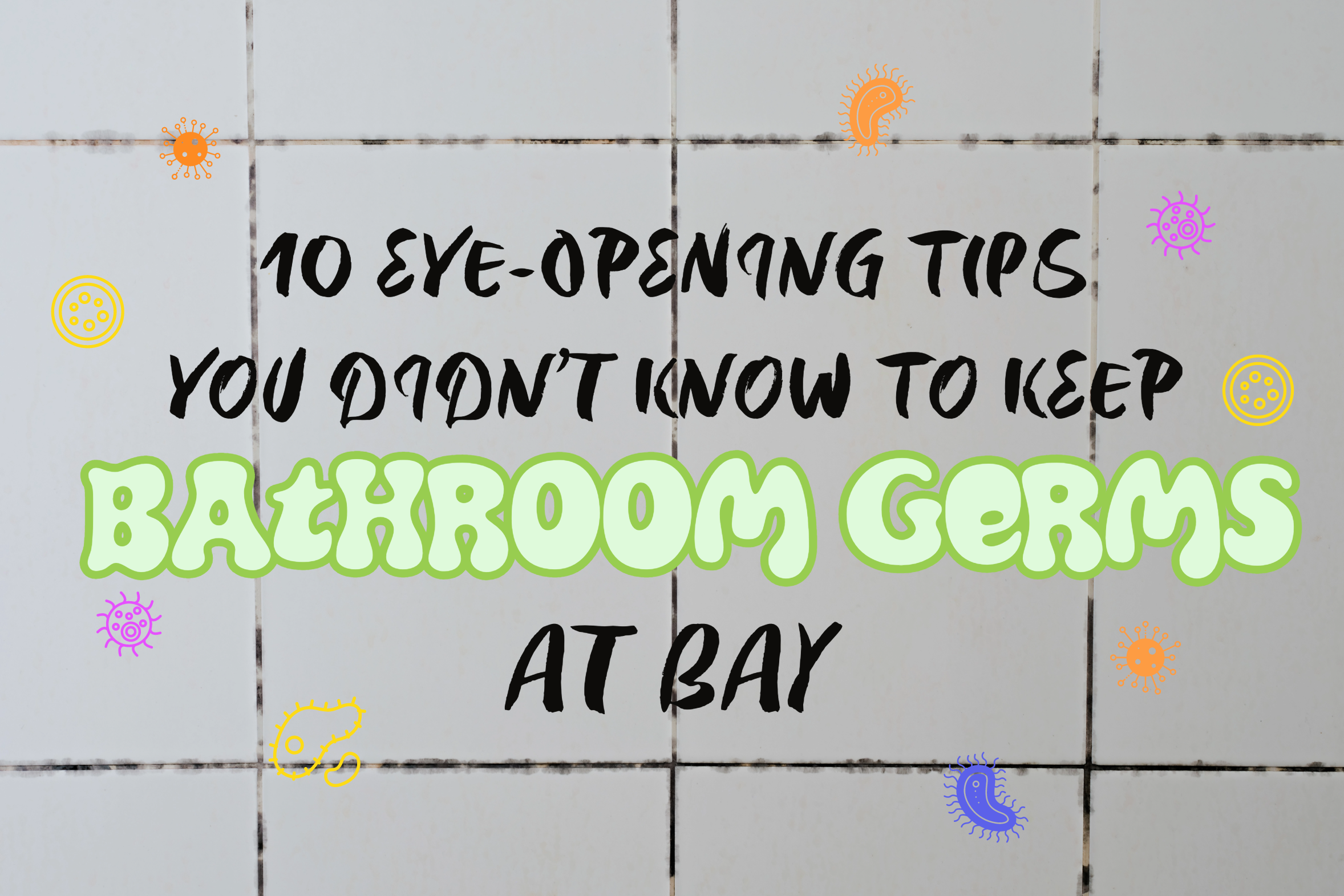Bathrooms are well-known for harboring germs thanks to moisture, bacteria, and other microbes. In a nutshell, bathrooms provide the ideal breeding ground for germs to thrive. We’re here to help you combat these issues, though. Our reliable team at Five Star Dayton Plumbing is ready to share ten eye-opening tips to maintain a hygienic and clean bathroom space. Join us as we promote hygiene practices and sanitary habits to help keep bathroom germs at bay.
Germiest Areas in Your Bathroom:
Before we delve into our tips, it’s important to understand which areas in your bathroom are most prone to germs. These areas include:
- Toilet seat and handle: It is crucial to disinfect these surfaces regularly as they are prone to bacterial contamination.
- Sink faucet and handles: These areas are frequently touched and can harbor germs, so routine cleaning is necessary.
- Shower curtains and bath mats: These items are prone to moisture, so regular replacement or washing is recommended to prevent mold and bacteria buildup.
- Towels and washcloths: To prevent the spread of bacteria, it is essential to wash and change these personal care items frequently.
- Countertops and surfaces, especially around sinks: Regularly wiping these areas with disinfectant helps maintain a germ-free environment.
Bacteria Found in Bathrooms:
Now, let’s delve into the different types of bacteria commonly found in bathrooms.
- E.coli
- Staphylococcus
- Salmonella
- Influenza virus
- Norovirus
10 Eye-Opening Tips to Keep Bathroom Germs at Bay:
- Thorough Handwashing: We all recognize the significance of proper handwashing. However, it’s always beneficial to reiterate this point. Ensure that everyone in your household understands the correct method of scrubbing their hands with soap and warm water for a minimum of 20 seconds. Effective handwashing, following the guidelines of the CDC, is a fundamental practice for preventing the spread of germs.
- Regular Bathroom Cleaning: If you haven’t already, it’s beneficial to designate a specific day of the week for cleaning your bathrooms. Plus, establishing a routine for thorough bathroom cleaning will help you stay organized and ensure that the task is completed. In addition, it is recommended to keep antibacterial wipes within reach. Utilizing wipes for quick and convenient disinfection helps in controlling the spread of germs between regular cleaning sessions.
- Cover Your Toothbrushes: To maintain oral hygiene, it is recommended to store toothbrushes with covers. This practice helps prevent airborne bacteria from landing on toothbrushes. Factors such as proximity to the toilet, aerosolized particles during flushing, and contact with hands can contribute to bacterial contamination. Therefore, keeping toothbrushes covered is the best option to ensure cleanliness and oral health.
- Always Flush with the Lid Closed: Closing the toilet lid before flushing minimizes the spread of bacteria, containing them and preventing the dispersion of airborne particles throughout the bathroom.
- Install a Touchless Faucet: Minimize surface contact by utilizing hands-free fixtures such as motion-sensor faucets. This helps reduce the risk of cross-contamination through surface touching.
- Disinfect Your Toilet Brush: It is important to clean your toilet brush after each use to prevent bacterial buildup. If you are using a toilet brush with disposable brush ends, this helps keep the brush free from bacteria. However, if that is not an option for you, make sure to clean the toilet brush after every use. To clean it, hold the toilet brush with the bristle end positioned over the toilet. Then, pour hot water and bleach over the bristle. Once done, place the toilet brush handle between the toilet bowl and seat lid to keep it elevated, allowing it to air dry for at least five minutes before returning it to the holder.
- Change Shower Curtains Regularly: To maintain a clean and hygienic shower space, it is recommended to change shower curtains or opt for washable fabric liners regularly. This helps prevent the buildup of bacteria and mold.
- Install a Bidet: Bidets offer a hygienic and thorough alternative to traditional toilet paper. They reduce the risk of spreading germs through hand contact, providing a cleaner option. Plus, they are affordable and easy to install yourself!
- Proper Bathroom Ventilation: Ensure proper ventilation in your bathroom after each use. This can be achieved through methods such as exhaust fans or open windows, which help reduce moisture levels and create an environment less favorable for bacterial growth.
- Professional Drain Cleaning: Are you struggling with bacterial growth and mold buildup in your household drains? We have the solution! Our professional drain cleaning service, scheduled every 1-2 years, will help you maintain a healthy plumbing system and prevent clogs and unwanted bacterial growth. With our expertise and commitment to quality, you can trust us to provide the best drain cleaning service for your needs. Contact us today for more information, and let us take care of your plumbing concerns!
Incorporating these tips into your routine will help you achieve a cleaner and more hygienic bathroom, reducing the likelihood of bacterial spread. Maintaining good bathroom hygiene is crucial for overall health, home cleanliness, and the proper functioning of your plumbing system.
Call Five Star Dayton Plumbing today at (937) 230-6506, or schedule an appointment online now by clicking here!




